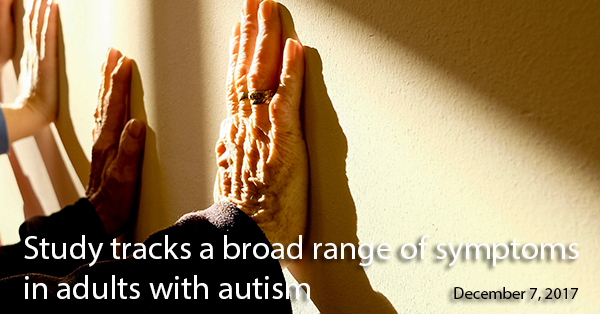Check out other stories from the Latest News
Symptom Profile in Adults with Autism
By Chelsea E. Toledo, M.A. on December 7, 2017

Background: With increasing prevalence of Autism Spectrum Disorder (ASD) in the past decades, a growing number of families face concerns about caring for children with ASD as they enter adulthood. One question for families and clinicians is whether the conditions that oftentimes accompany ASD – including tantrums, seizure, sleep and gastrointestinal (GI) disorders– will persist as the children age.
What’s new: A recent study tracked a number of symptoms and conditions that tend to accompany ASD in older adults over time. The retrospective study leveraged 35 years of medical records belonging to 74 adults with ASD, obtained with permission from a community agency serving this group. The researchers made several important observations:
- Behavioral and psychiatric symptoms (including self-harm and tantrums) decreased significantly across the board as the individuals aged.
- Physical symptoms differed somewhat among participants older than 50 when compared to their younger peers; the older group experienced more GI symptoms, while the younger group was more likely to experience diabetes and hay fever, and to exhibit physical aggression.
Why it’s important: This study suggests that the behavioral and psychiatric symptoms observed in children with ASD may not persist as the children get older. It also points to possible differences between middle aged and older people with ASD, which merit further study.
Help me understand :
| Source(s) : |
| Tweet |

